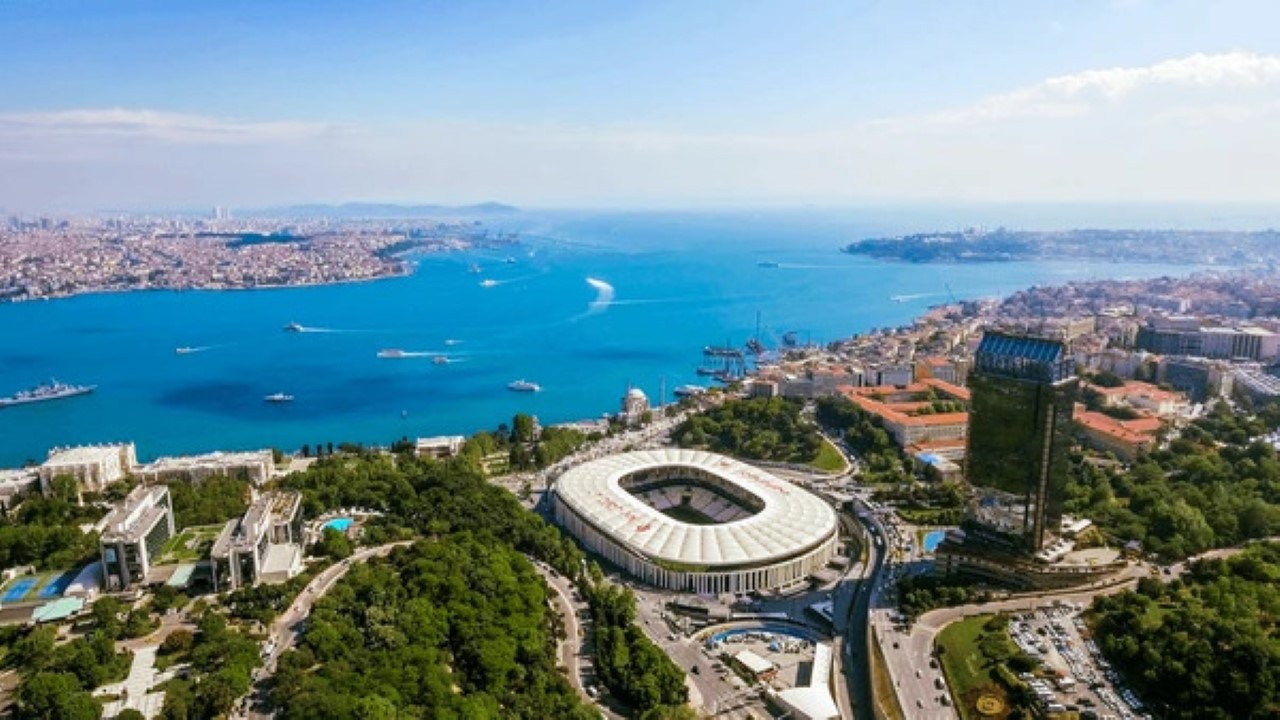Beşiktaş Stadium: The Home of Passionate Football in Istanbul
Introduction
Located in the heart of Istanbul, Beşiktaş Stadium—officially known as Vodafone Park—is one of the most modern and iconic sports venues in Turkey. Serving as the home of Beşiktaş J.K., one of Turkey’s most prestigious football clubs, the stadium is a symbol of passion, history, and football excellence. Overlooking the Bosphorus, Beşiktaş Stadium stands not just as an arena for sports but as a monument to Istanbul’s rich football culture and historic sporting heritage.
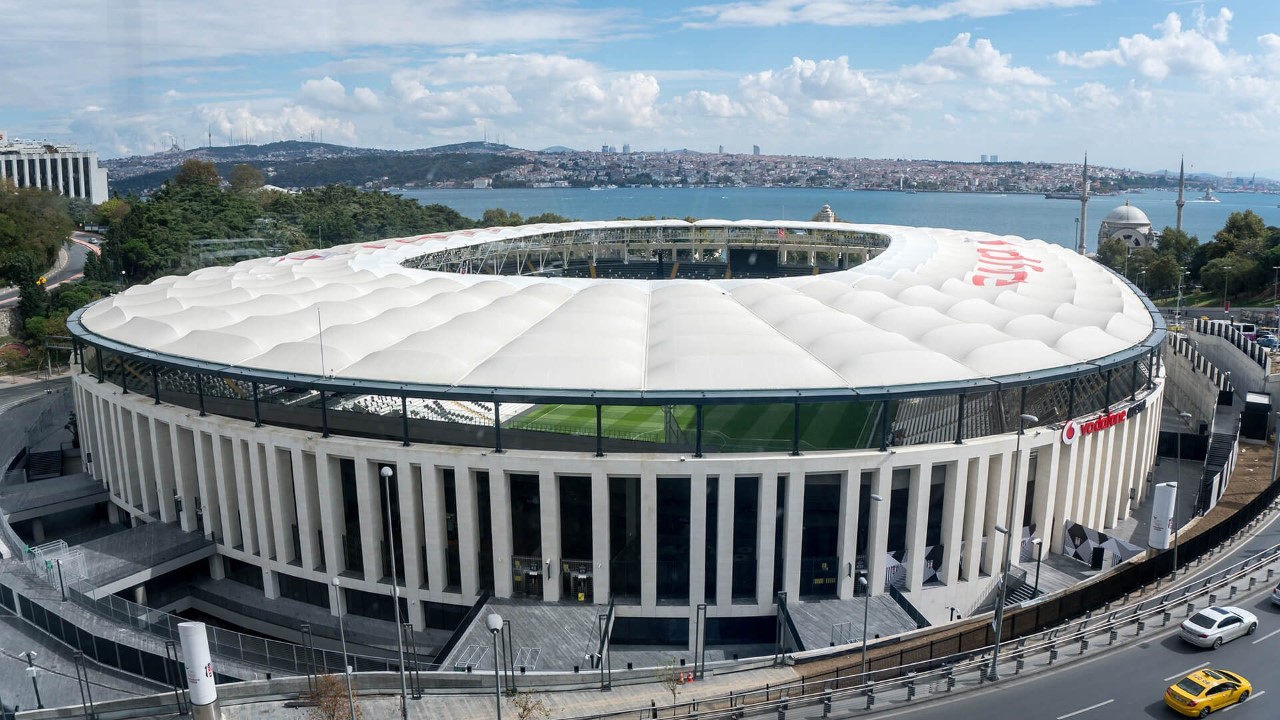
The Evolution of Beşiktaş Stadium
The Original İnönü Stadium (1947-2013)
The Birth of a Football Landmark
Before the current Vodafone Park, Beşiktaş played its home matches at İnönü Stadium, originally built in 1947. Named after İsmet İnönü, Turkey’s second president, the stadium was a historic venue where legendary matches took place for decades. Designed by Paolo Vietti-Violi, the stadium was officially opened on May 19, 1947, coinciding with Turkey’s Youth and Sports Day.
Iconic Matches and Football Legends
İnönü Stadium became a battleground for some of the most memorable football matches in Turkish history. It hosted Beşiktaş’s championship victories, historic Galatasaray and Fenerbahçe derbies, and even European football clashes. The stadium witnessed the rise of Turkish football legends such as Süleyman Seba, Metin Tekin, and Sergen Yalçın.
Demolition and the Birth of Vodafone Park
Why İnönü Stadium Was Rebuilt
Despite its historic importance, İnönü Stadium became outdated, struggling to meet modern football standards. In 2013, after much debate and planning, the stadium was demolished to make way for a new, state-of-the-art facility—Vodafone Park.
Construction of a Modern Football Fortress
The construction of Vodafone Park began in 2013, and the new stadium officially opened on April 11, 2016. The design aimed to preserve the historic significance of the original site while integrating modern infrastructure and technology.
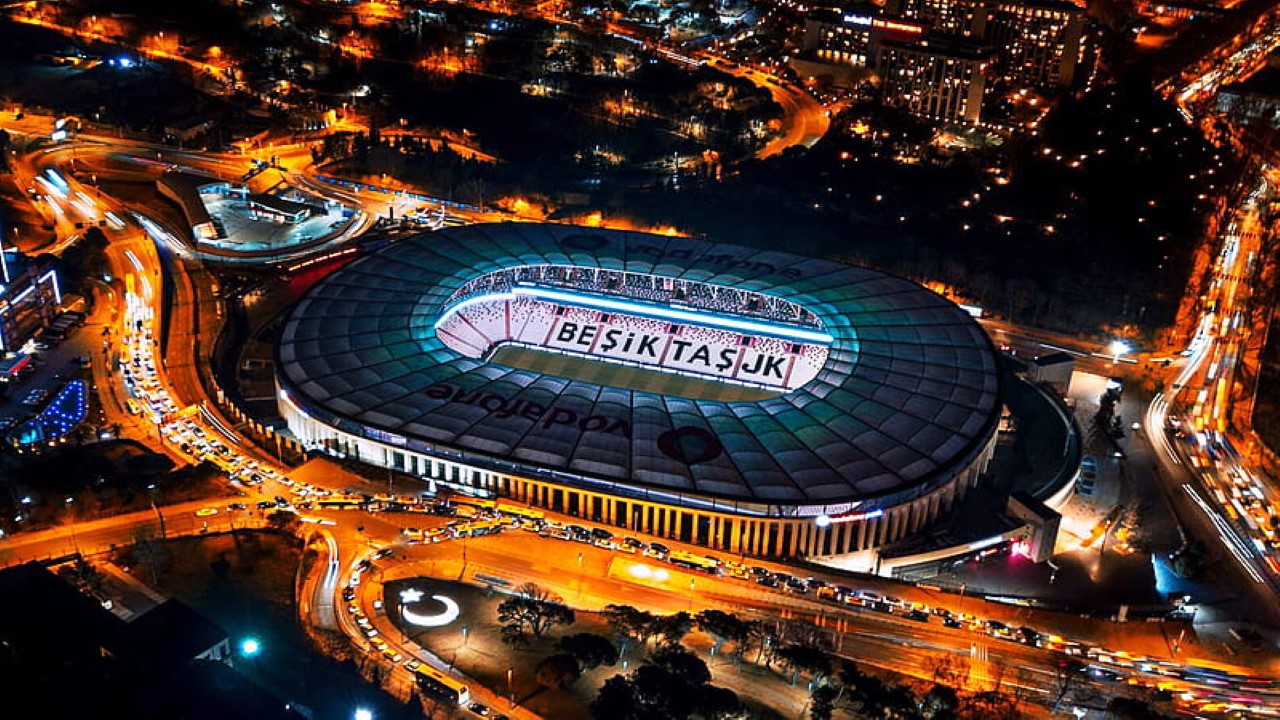
Architecture and Features of Vodafone Park
A Modern Stadium with a Historic Touch
Blending Tradition and Innovation
Vodafone Park was designed with a focus on maintaining the historic character of the original İnönü Stadium while incorporating contemporary architectural elements. Some key design features include:
- A semi-open design, allowing natural ventilation and stunning views of the Bosphorus.
- Maintaining the original stadium’s exterior, ensuring continuity with Beşiktaş’s history.
- Eco-friendly technology, including energy-efficient lighting and advanced drainage systems.
Key Features and Facilities
Seating and Fan Experience
- Capacity: The stadium can accommodate 42,590 spectators, making it one of the largest in Turkey.
- Noise Levels: The acoustics are engineered to enhance fan chants and atmosphere, creating an intimidating experience for visiting teams.
- Luxury Boxes: Vodafone Park features 147 private VIP boxes, providing a premium experience for corporate guests and celebrities.
Advanced Technology
- 5G connectivity, making it one of the most technologically advanced stadiums in Europe.
- High-definition screens, ensuring fans don’t miss a second of the action.
- Interactive fan zones, allowing supporters to engage with Beşiktaş history and match statistics.
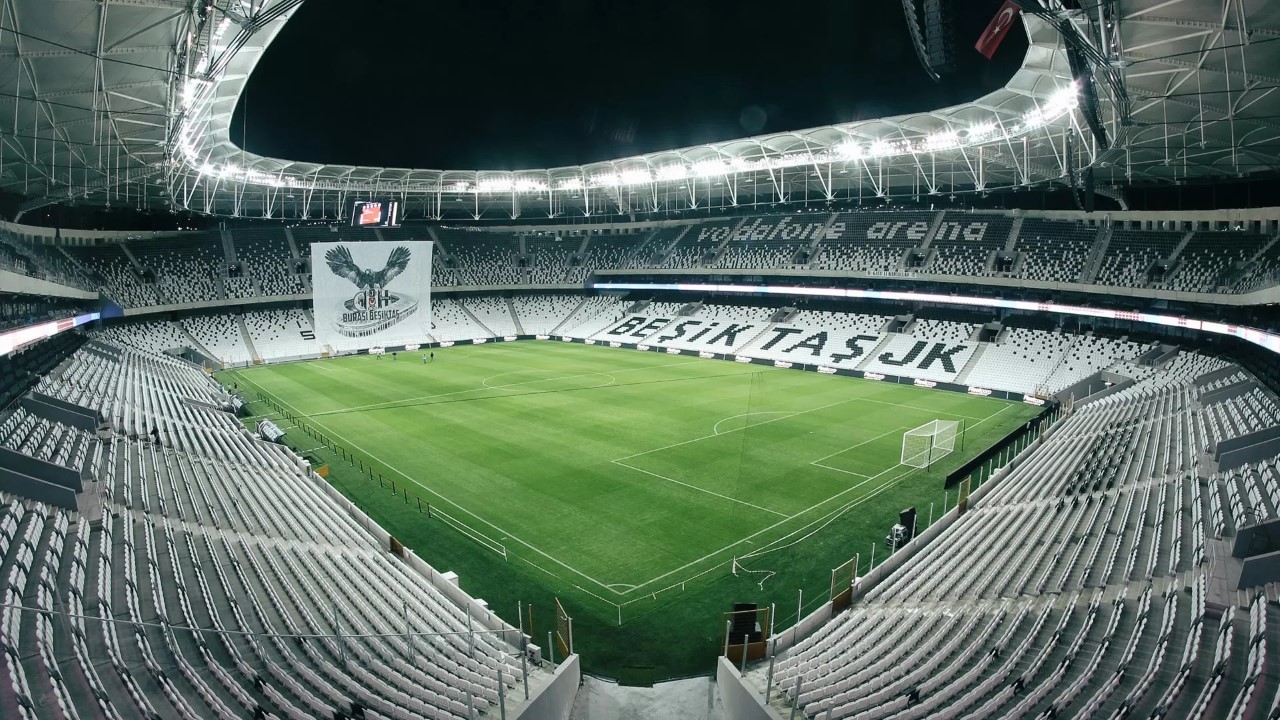
Historic Events and Memorable Matches
Legendary Football Matches
First Match in Vodafone Park
The inaugural match at Vodafone Park took place on April 11, 2016, when Beşiktaş played Bursaspor. Beşiktaş marked the occasion with a 3-2 victory, setting the stage for many more memorable moments.
Beşiktaş’s Unforgettable 2016-17 Championship Season
During the 2016-17 Turkish Süper Lig season, Beşiktaş dominated their opponents, using Vodafone Park as a fortress on their way to clinching the league title.
International Matches and Events
- UEFA Super Cup (2019): Vodafone Park hosted the historic UEFA Super Cup final between Liverpool and Chelsea, which ended in an intense penalty shootout victory for Liverpool.
- Turkey National Team Matches: The stadium has also been used for Turkish national team fixtures, enhancing its reputation as a world-class venue.
- Concerts and Cultural Events: Beyond football, Vodafone Park has hosted major concerts, with performances from world-renowned artists.
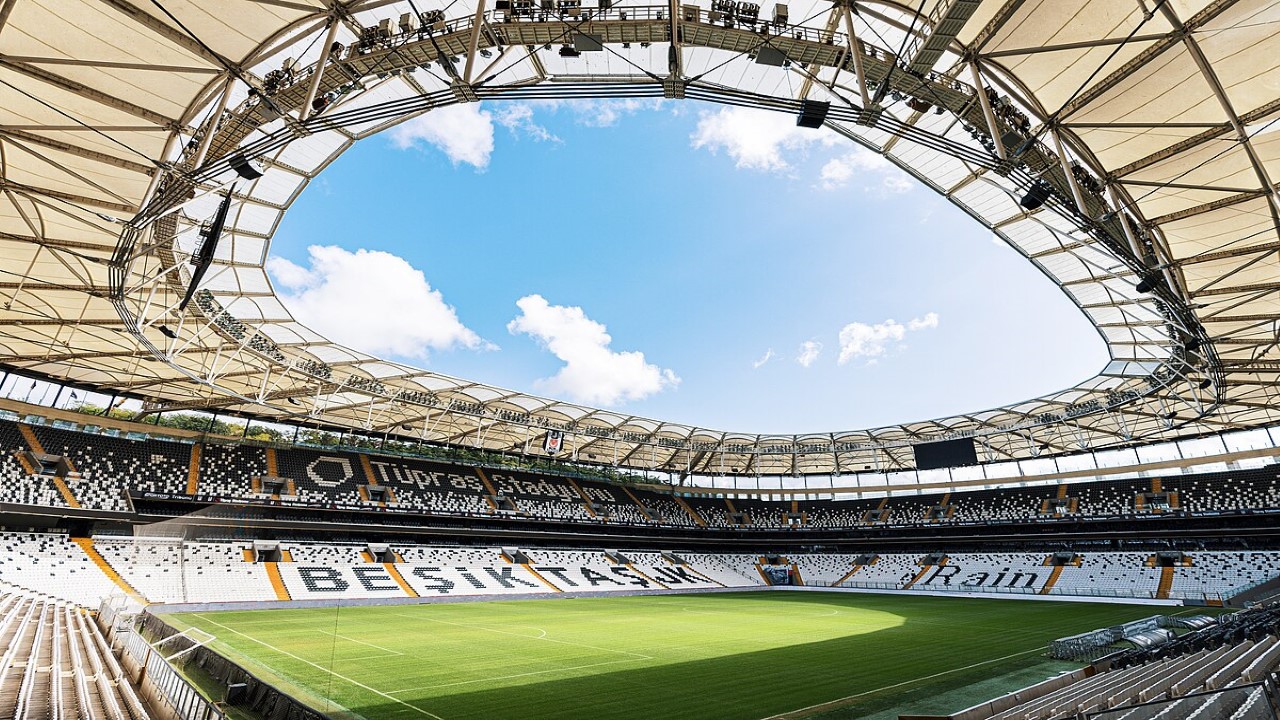
Impact on Turkish Football and Culture
The Beşiktaş Fan Culture
Beşiktaş fans, known as the Çarşı Group, are among the most passionate supporters in the world. Their chants, banners, and unique fan culture create an electrifying atmosphere at Vodafone Park.
Economic and Social Impact
- The stadium has boosted local businesses, including restaurants, hotels, and tourism in Beşiktaş.
- Employment opportunities have increased due to stadium operations and event hosting.
- Vodafone Park has reinforced Istanbul’s status as a global sports destination.
Conclusion
Beşiktaş Stadium, now known as Vodafone Park, is more than just a football venue—it’s a symbol of passion, history, and modern innovation. From its humble beginnings as İnönü Stadium to its transformation into a world-class sports arena, the stadium continues to serve as the beating heart of Turkish football. Whether you are a football fan, a tourist, or simply an admirer of great architecture, Vodafone Park is a must-visit landmark in Istanbul.
FAQs About Beşiktaş Stadium
Vodafone Park has a capacity of 42,590 seats, making it one of Turkey’s largest and most modern stadiums.
The stadium was officially opened on April 11, 2016, replacing the historic İnönü Stadium.
Beşiktaş fans, especially the Çarşı Group, are known for their passionate support, loud chants, and unique social activism, making Vodafone Park one of the loudest stadiums in the world.
Yes! The most famous was the 2019 UEFA Super Cup final between Liverpool and Chelsea. The stadium has also hosted Turkey’s national team matches and various European club fixtures.
Vodafone Park offers stadium tours where visitors can explore the locker rooms, museum, and pitch. It is easily accessible from central Istanbul, located in the Beşiktaş district near Dolmabahçe Palace.
